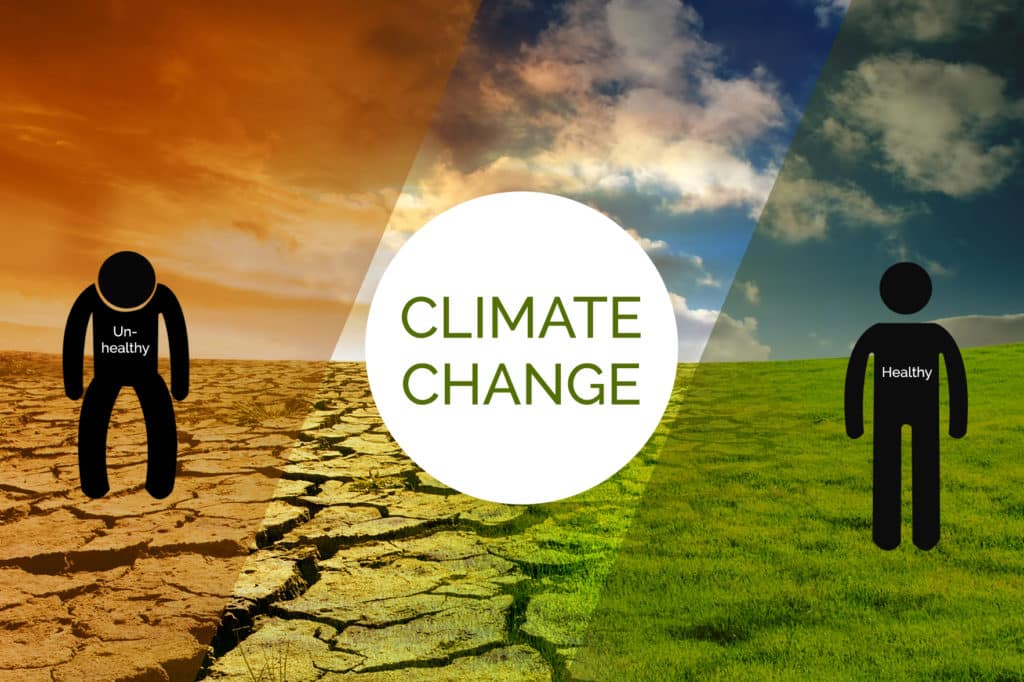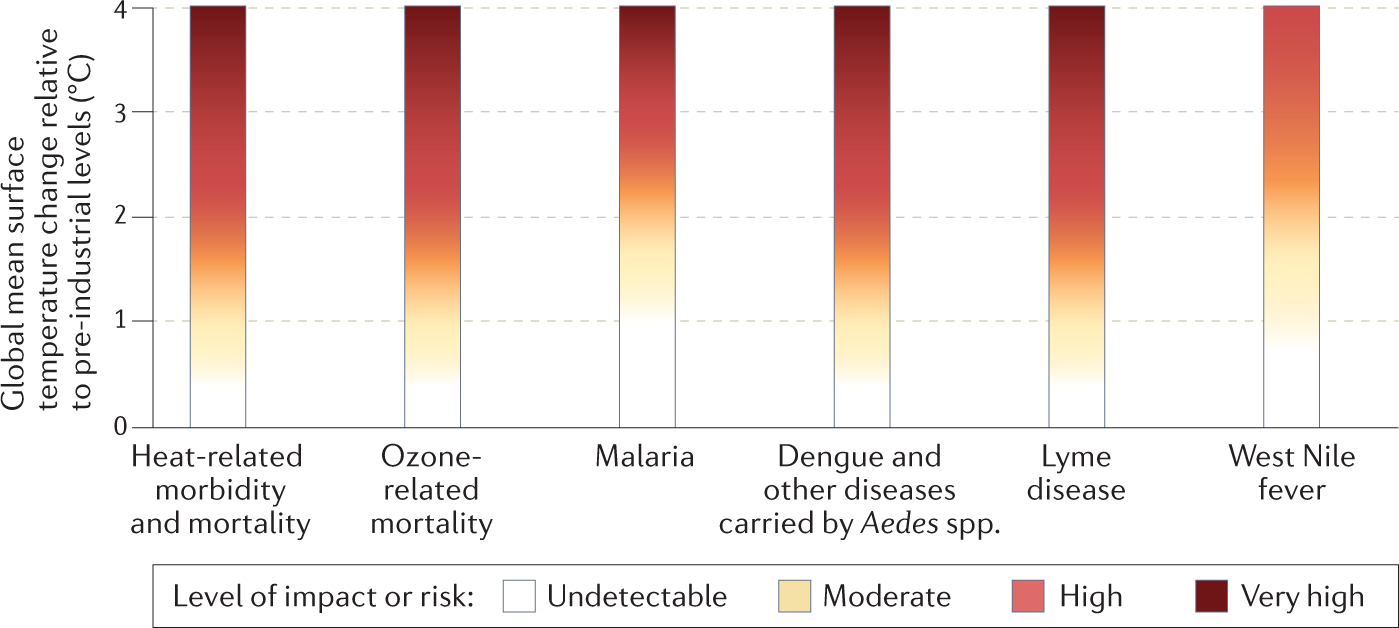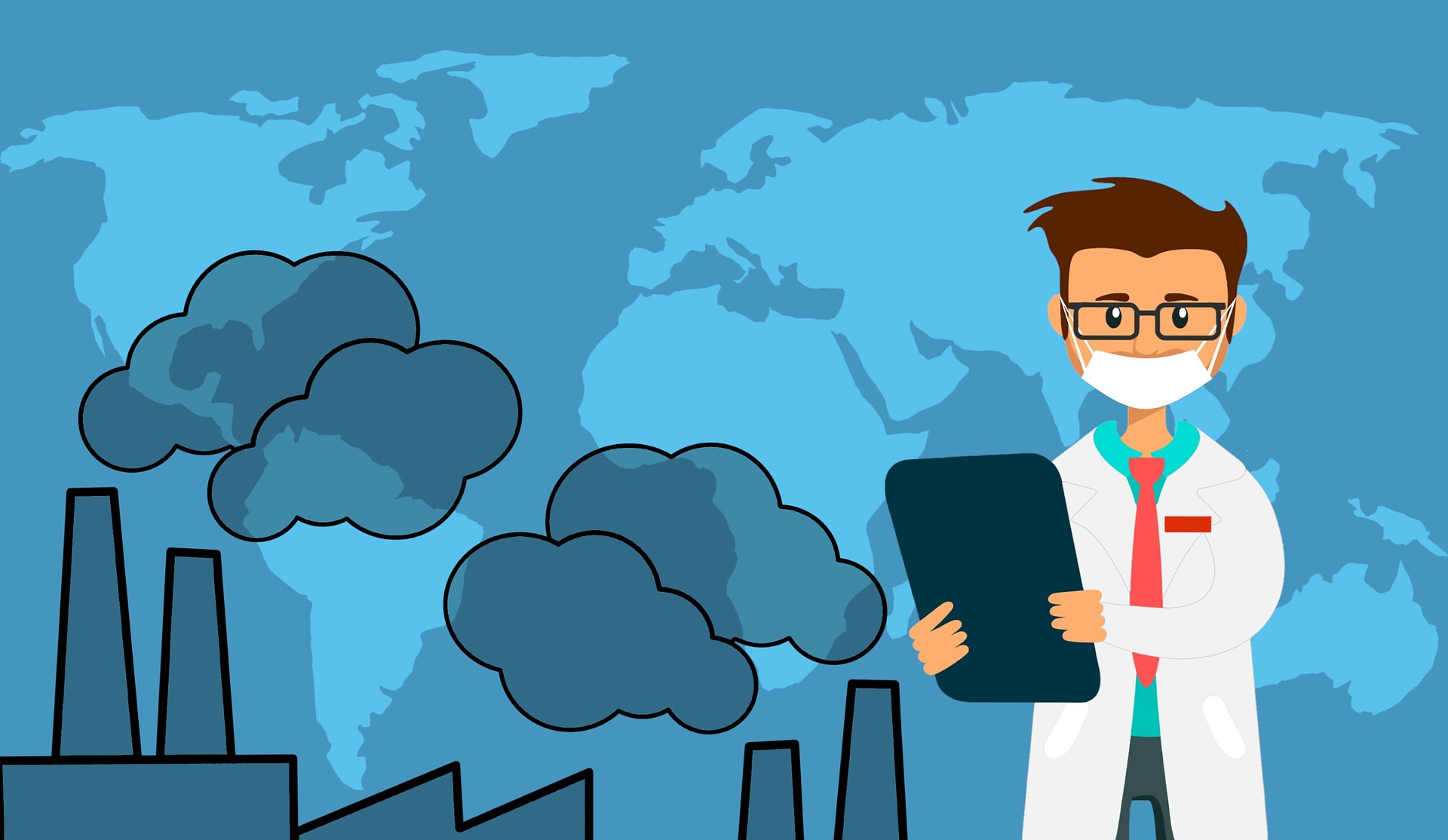Climate change is no longer a distant threat—it is a present reality with profound impacts on human health. As global temperatures rise and weather patterns shift, the risks to physical and mental well-being are escalating at an unprecedented rate. Understanding these risks and preparing for them is essential for safeguarding communities worldwide.

How Climate Change Affects Human Health
1. Extreme Weather Events
-
Increased frequency and intensity of heatwaves, floods, wildfires, and storms are causing more injuries, deaths, and displacement than ever before.
-
These disasters disrupt healthcare systems, making access to medical care and essential supplies challenging.
2. Heat-Related Illnesses
-
Rising temperatures lead to more cases of heat exhaustion, heatstroke, dehydration, and exacerbation of cardiovascular and respiratory diseases.
-
Older adults, children, and those with chronic illnesses are particularly vulnerable, with heat-related mortality among people over 65 rising dramatically in recent decades.
3. Air Pollution and Respiratory Diseases
-
Climate change worsens air quality by increasing ground-level ozone and airborne pollutants, leading to higher rates of asthma, allergies, COPD, and other respiratory conditions.
-
Wildfires, intensified by dry and hot conditions, further degrade air quality and respiratory health.
4. Spread of Infectious Diseases
-
Changes in temperature and rainfall patterns expand the habitats of disease-carrying vectors like mosquitoes and ticks, increasing the spread of malaria, dengue, Lyme disease, and Zika virus.
-
Floods and droughts can contaminate water sources, leading to outbreaks of waterborne diseases such as cholera and gastrointestinal infections.
5. Food and Water Insecurity
-
Disrupted food production and water systems heighten the risk of malnutrition and foodborne illnesses.
-
Climate change threatens the availability, safety, and nutritional value of food, impacting vulnerable populations the most.
6. Mental Health Impacts
-
The unpredictability of climate events and perceived inaction from leaders contribute to anxiety, depression, and other mental health challenges, especially among young people.
Rising Risks: The Data
-
Between 1993 and 2022, over 765,000 lives were lost due to extreme weather events, with direct economic losses of nearly $4.2 trillion.
-
By 2050, climate change could cause an additional 14.5 million deaths and $12.5 trillion in economic losses worldwide.
-
The World Health Organization estimates 250,000 additional deaths per year from undernutrition, malaria, diarrhea, and heat stress between 2030 and 2050.
Who Is Most at Risk?
-
Populations in low- and middle-income countries, especially those with weak health infrastructure.
-
Children, older adults, outdoor workers, and people with pre-existing health conditions.
-
Communities facing poverty, food insecurity, and limited access to healthcare.
How to Prepare: Strategies for Resilience

1. Mitigation: Reducing Greenhouse Gas Emissions
-
Transition to renewable energy, improve energy efficiency, and adopt sustainable practices in transportation, agriculture, and industry to slow climate change.
2. Adaptation: Building Resilient Communities
-
Develop early warning systems for extreme weather.
-
Improve infrastructure to withstand disasters and ensure healthcare facilities have backup power and robust supply chains.
3. Strengthening Public Health Systems
-
Enhance disease surveillance and public health preparedness for climate-related emergencies.
-
Educate healthcare professionals and the public about climate-related health risks and prevention strategies.
4. Focusing on Vulnerable Populations
-
Prioritize resources and support for those most at risk, including targeted health interventions and social support systems.
5. Promoting Global Collaboration
-
International cooperation is essential to share resources, knowledge, and technology to address health risks and build climate-resilient health systems.
Final Note
Climate change is reshaping the landscape of human health, amplifying existing risks and creating new ones. The time to act is now. By understanding the threats, investing in resilient health systems, and working collectively to reduce emissions, we can protect lives and build a healthier, more sustainable future for all.
With inputs from agencies
Image Source: Multiple agencies
© Copyright 2025. All Rights Reserved Powered by Vygr Media.





















